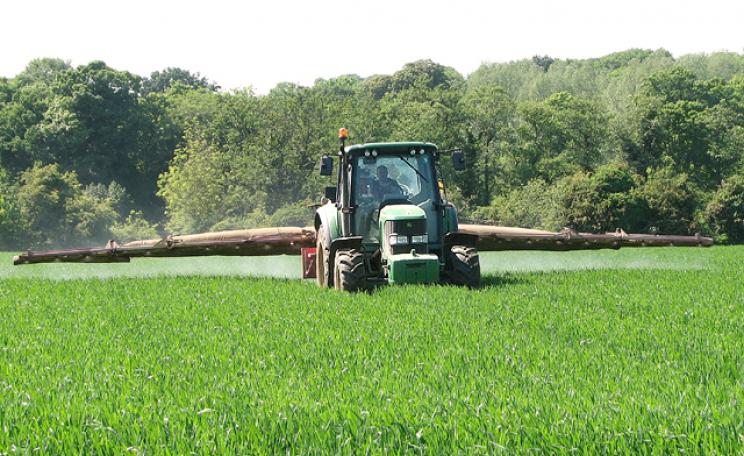Will promises for "the most ambitious environmental programme of any country on earth" be met?
The Conservative Party promised the UK "the most ambitious environmental programme of any country on earth”.
Standards for animal welfare, worker rights, environment and agriculture would all be raised, according to the party in its 2019 election manifesto.
An Agriculture Bill will replace the EU Common Agricultural Policy with a land management system that rewards farmers for “public goods”, such as improving air and water quality, and providing habitats for wildlife.
Funding
Similarly, a Fisheries Bill, replacing laws in the EU Common Fisheries Policy, will contain a legal commitment to fish sustainably, and a legal requirement for a plan to achieve maximum sustainable yield for each stock, the manifesto promises.
The manifesto also repeated the government’s intention to create an independent Office for Environmental Protection to replace the oversight of the European Commission through a new Environment Bill, which will also introduce legal targets on air pollution.
Existing plans to introduce a levy to raise the proportion of recycled plastic in packaging; ban the export of waste to non-OECD countries and make manufacturers pay the full cost of disposing of packaging were also all reaffirmed in the manifesto.
The party pledged a new £640 million Nature for Climate fund; the planting of 75,000 acres of trees a year by the end of the next Parliament, and new national parks and Areas of Outstanding Natural Beauty.
It also promised to increase penalties for fly-tipping; make those on community sentences clean up their parks and streets; and introduce a deposit return scheme to incentivise people to recycle plastic and glass.
Environmental campaigners
Other specific funding pledges the government has promised for its first budget include a £500 million “Blue Planet Fund” to help protect oceans from plastic pollution and overfishing; £4 billion for new flood defences; £800 million to building a fully-deployed carbon capture storage cluster by the mid-2020s; and £9.2 billion in the energy efficiency of homes, schools and hospitals.
Will promises for "the most ambitious environmental programme of any country on earth" be met?
Fracking, which has been under a moratorium since November, will not be supported unless science shows categorically that it can be done safely, it said.
But Boris Johnson’s landslide election win has worried environmental campaigners that pledges made to win support of MPs and voters will not now be adhered to.
Performance so far is not reassuring. The Committee on Climate Change (CCC) warned the government of the urgency of the UK “getting its own house in order” before it hosts the next UN climate change negotiations in November.
The net zero target was passed eight months ago, just before Johnson became prime minister, yet little new policy or legislation has been announced since, it said.
Scrutiny
The Queen’s speech did confirm that legislation will go ahead on several of the government’s environmental commitments.
Bills on agriculture and fisheries are both being brought forward, as is the Environment Bill. Detail on these pieces of legislation will be published soon.
But the new EU Withdrawal Bill omits a legally-binding clause committing the UK to not reduce green protections after Brexit that was in the previous version.
Non-regression of EU environmental standards was repeatedly promised by Johnson before the election. MPs passed the bill by 358 votes to 234 on Friday, and it looks set to be granted Royal Assent by 31 January.
The revised version of the bill also lessens scrutiny of trade negotiations. It does not contain a clause giving Parliament a role in approving the government’s negotiating mandate in the UK’s future relationship with the EU, and an enhanced Parliamentary approval process for the future trade deal.
The Ecologist will scrutinise new environmental legislation as it is bought forward next year.
This Author
Catherine Early is a freelance environmental journalist and chief reporter for The Ecologist. She can be found tweeting at @Cat_Early76.







